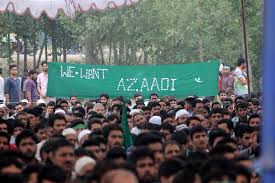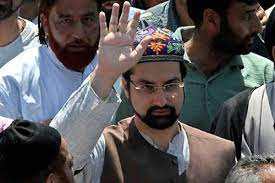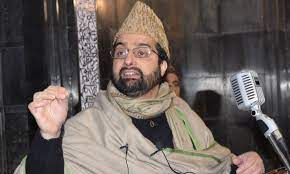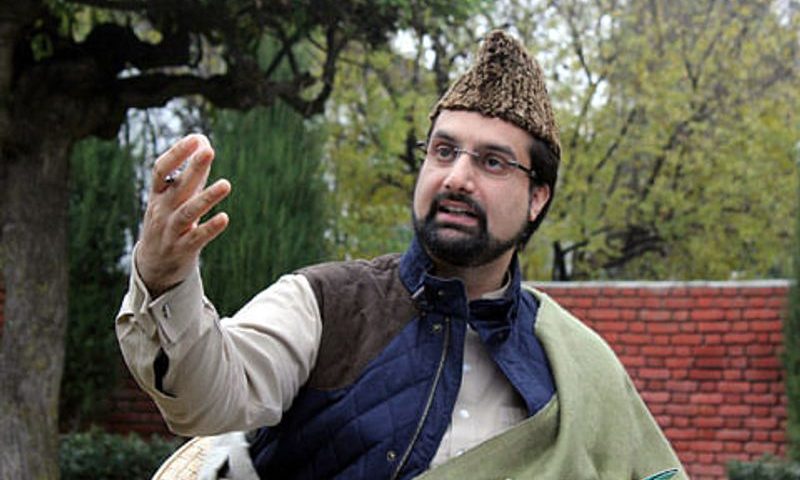Mumbai mastermind Zaki-ur-Rehman Lakhvi’s nephew was among six Pakistani terrorists killed in an encounter at Hajjin in Bandipora in north Kashmir on Saturday. This read with the killing of Jaish-e-Mohammed chief Masood Azhar’s nephew in another encounter a few days ago, shows the level militancy has scaled in Kashmir.
New geo-strategic risks have surfaced, ferociously threatening the Indian nation. The euphoria over the return of footballer-turned-militant Majid Arshan Khan to his home on the appeal of his mother died within hours after an ISIS-affiliate militant commander Mugees Mir was killed by the security forces, and a large number of people participated in his funeral procession and separatist leader Syed Ali Shah Geelani paid tributes to him.
Earlier, Geelani had poured scorn on global Islamic outfits Al-Qaida and ISIS and their local faces, saying that they were importing a Syria-like situation and defaming the “Kashmir movement”. But on Saturday his statement was rich with tributes to the martyrdom of the militant who was buried with an ISIS signature flag on his coffin. This apparent shift exposes the latent understanding that the “indigenous freedom struggle” appears to be having global Islamic networks pursuing an extremist agenda of setting up a caliphate across the world.
This will give a new life to the hired tongues and pens promoting radicalisation in Kashmir. The fact is that the ISIS has grown in Kashmir gradually, it has edged out the moderates out of the scene.
It enhances the task of the Indian nation in Kashmir of neutralising the radicalisation and the global-linked militancy. This threat is far beyond the reach of the cordon and search operations. Instead, these methods may backfire and encourage more to associate themselves with the IS and Al-Qaida ideologies. It will have an adverse impact on the social fabric of the Valley, once known for its tolerance and mutual co-existence. It is getting torn apart.
This threat has already engulfed some other parts of the state, including the erstwhile Doda district and twin border towns of Rajouri and Poonch districts in the Jammu region.
Mumbai mastermind Zaki-ur-Rehman Lakhvi’s nephew was among six Pakistani terrorists killed in an encounter at Hajjin in Bandipore in north Kashmir on Saturday. This read with the killing of Jaish-e-Mohammad chief Masood Azhar’s nephew in another encounter a few days ago, shows the level militancy has scaled in Kashmir.
First, it reveals the deepening involvement of Pakistan and its non-state actors in shaping the contours of the new brand of militancy, the roots of which lie in global terror networks. It will deflate Farooq Abdullah’s reinvented raga of “greater autonomy”. Religious sentiments are being invoked as never before to subsume the political goals, which always were illusory.
Pakistan will also exploit this phenomenon of ISI-patronised non-state actors “sacrificing” their near and dear ones in Kashmir to its advantage. “Kashmir as the jugular vein of Pakistan” has been brought to a sharper focus now.
A bigger game is at work in these “sacrifices”. It is working two ways. While the state police officers and the Army are playing up the “Pakistani roots of militants” to tell the world how Pakistan is ruining the landscape in Kashmir, but in Kashmiri psyche Pakistan’s role in sacrificing its youth can have an indoctrination effect. Discretion is required, but people in authority are not exercising that.
Then there are sinister attempts being made to fragment the state of Jammu and Kashmir on religious lines. The noise to have separate hill councils for the erstwhile Doda district and Rajouri and Poonch is essentially aimed at dividing the Jammu region on communal lines while ostensibly playing the hills versus plains cards.
The design, it seems, is to create conditions that even if the status quo is maintained, the geographical and psychological risks would become a nightmare for the country.






